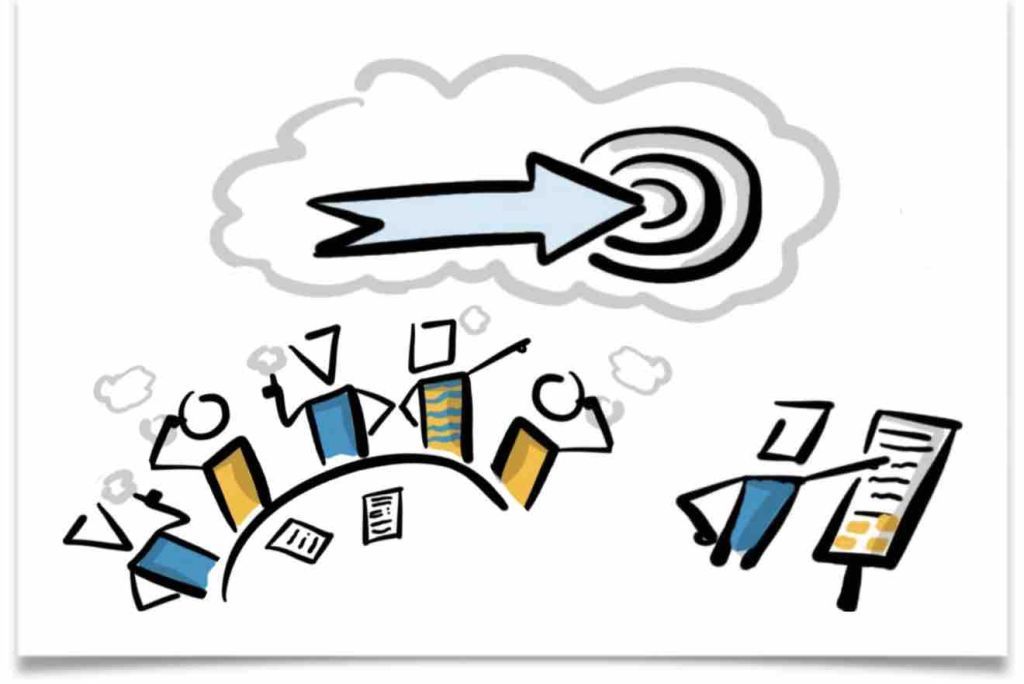In our introduction and earlier series, we discussed about Agile Coaches should have teaching skills, mentoring skills, advising and consulting skills, and also professional coaching skills, and with domain knowledge so that they can teach, mentor, advise and consult.
We only briefly touched upon facilitation, and now let’s zoom into facilitation and also the difference between an Agile Coach and a professional facilitator.
First if I can ask you to embrace a beginner’s mind – I know you might react by thinking, “oh, I know what facilitation is.”
Facilitate comes from the Latin facilis, for “easy.” It means to make something easier or more likely to happen. Facilitator role was created to be a neutral role who is neutral and unbiased, to solely support the group discuss and make decisions without exerting influence over the outcome. Thus facilitation is about helping a group reach a shared goal and assisting them in achieving the desired results through discovering, ideating and creating their own content, without taking a stand or producing the content yourself.
Facilitation is about managing the process,
rather than the content.
Facilitation Process and Content
For any interactions among people, there are also two dimensions. Let’s first distinguish the two.Facilitation
The Content is the WHAT being discussed. This may include:
- the topics and subjects being discussed,
- the problems being solved,
- the decisions being made,
- the goals to be achieved,
- the opportunities being explored,
- the agenda items,
- the tasks and actions that may be generated,
- …

A good professional facilitator will stay outside the Content, or the WHAT if you prefer entirely. Hence the facilitator is totally unassertive about the content under discussion.
The Process is about the HOW the Content would be discussed. This may include:
- the workshop design,
- the tools being used,
- the techniques being employed,
- the methods being used,
- the group dynamics,
- the atmosphere,
- the norms being set,
- the relationship management and maintenance,
- the conflicts,
- …
A good facilitator can design and develop processes for a specific workshop, execute the processes during workshop facilitation, and support the group using tools, methods, techniques, and possible interventions to enable the participants to achieve the desired outcome.
The Challenges of an Agile Coach
Agile Coaches facilitate often. They can facilitate a Product Backlog Refinement session for the Scrum Team, Sprint Planning, product roadmap workshop, product prioritization discussions, and more.
Agile Coaches certainly need to be strong with facilitation skills, i.e. expert with facilitation process and being good facilitators. At the mean time, Agile Coaches are not entirely outside the content being discussed. This is the moment, an Agile Coach may have to be a content leader, which means an Agile Coach can offer an opinion with the intent of influencing the outcome of a discussion.
Let’s look at an example:
Vicky is an Agile Coach, and she is facilitating a Product Backlog Refinement session. (The content here includes a long list of things, the product vision and goal, the overview of the strategy, the product backlog items (user stories), the tasks to undertake, the dependency, the uncertainties, and the problems with the product backlog items, such as uncertainties in terms of what to build, and/or whether it is possible to build, etc.)
While she facilitates, she notices that the Scrum Team members are all happy with the “user stories” they come up with, but these so called “user stories” are only technical tasks. True user stories should satisfy I.N.V.E.S.T. criteria.At this moment, as a good Agile Coach, Vicky knowns that this team knows what good user stories are. She knows that she needs to intervene.
When team members start to evaluate technically how to achieve them. Vicky notices team members are going into technical implementation details, which is not the right level of discussion at this time. She starts to intervene in this moment as well.
A good Agile Coach knows when to intervene to best support their teams and organizations to improve.
There is much to say about facilitation in an agile context, while there is also a 2-day workshop with follow-up session as well. Check out the Certified Facilitator workshop to learn about facilitation and facilitation in agile context.


